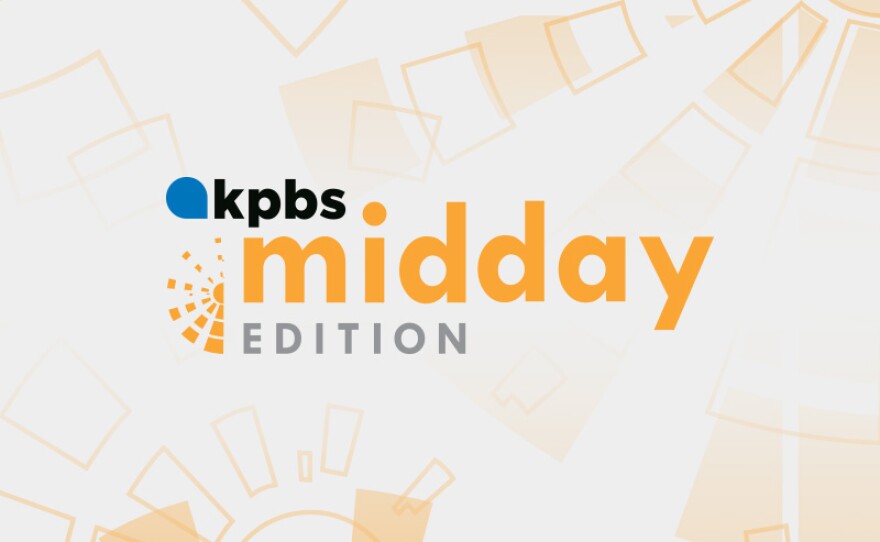Jury Rules In Favor Of El Cajon Officer In Alfred Olango Police Shooting
Speaker 1: 00:00 It took a jury less than two hours to find El Cahone police officer Richard Gonzalvez not negligent. And the 2016 shooting death of Alfreda Longo Alango was shot in a strip mall after his sister called nine one one a number of times to report he was experiencing a mental health crisis can solve as arrived at the scene and shot a Longo who had been darting in and out of traffic and was holding a vaping device. Seconds later. Bianca Bruno with courthouse new service has been covering the story and joins us in studio. Bianca, thanks for being here. Thank you. Remind us of the details of the case, what happened and why. So Alfreda Longo was shot on September 26 2016 by officer Richard Gonzalvez, um, after he had been responding to a call for, um, a Longo was darting in and out of traffic. His sister was concerned about his wellbeing. Basically the two were in a parking lot. Speaker 1: 01:00 And um, Mr Gonzalvez, the officer had his gun drawn at one point along ago, had a vape pen that he, uh, basically pointed at the officer's head. He thought that it was a gun and shot, uh, a long go four times. So he was going for a mental health call and immediately got out of the car with this gun out, gun drawn. His gun was drawn, it was down by his side. Um, it wasn't raised until the point at which Mr, uh, Longo drew a vaping device and who bought the case against Gonzalvez and the city and, and what were they asking for? So, in the trial this week was a consolidated case. Um, one was brought by his sister, Lucille Longo, who is the person who called, uh, nine one, one, multiple times. Um, she witnessed the shooting and, uh, claims to suffer from post traumatic stress disorder and depression as a result. Speaker 1: 01:57 And then the case was also brought by, uh, his wife to Nia Rosier and his daughter charade rosier along ago. And you were in the courtroom. Tell us about the reactions to the verdict. Officer Gonzalvez was seated at the defense table the entire time and he broke down in tears when, uh, the verdict was read. And you talked with the attorneys for the Alango family. What did attorney Brian Dunn say actually during the, uh, during Mr Dunn's closing arguments yesterday? He said that, uh, that along ago was kind of the weakest person in the situation, meaning he was the one who, uh, was experiencing a mental health crisis. Officers were aware of that because his sister Lucy had told dispatchers and she talked to, uh, consalvo as his partner, um, officer McDaniel and also informed him of that. But that didn't really get relayed to Gonzalvez apparently. Speaker 1: 02:58 Um, before he encountered a Longo. Basically he said that officers didn't follow, um, uh, California sort of guidance guidelines for police officers when, uh, encountering people with disabilities and mental illness, which basically, um, advises that they need to engage in deescalation practices. And how did the city respond to them? What did the city's attorney Michael Dean say about a long goes mental health crisis? They acknowledged that, um, it was a tragic situation that no one disputed that that along ghost sisters Lucy had experienced, uh, post traumatic stress disorder and other, um, mental health problems as a result of witnessing her brother's death. But at the same time they said that a long ago, um, had cocaine in his system that day. They know that it contributed to his erratic behavior and that basically the officer, um, d ran out of options and choices in terms of deescalating the situation because, uh, Longo had his hand in his pocket and then drew what he believed was a gun. Speaker 1: 04:09 What did he say about the jury's reaction to evidence like the vaping device? Apparently most of them were very shocked at how large it was. Um, and the fact that this sort of silver attachment, which I believe might be the mouthpiece looked like a gun barrel, um, especially in the way in which it was pointed at can solve is do you get a sense that this tragic event, uh, has led to any evaluation of, or changes in police procedures? I know, uh, kind of in the aftermath of the shooting, there were a lot of calls for more mental health, uh, professionals to be hired and to, uh, be responding to these calls and not to have, uh, police officers as the first line of defense when dealing with mental health issues. Um, I'm not sure kind of the status on if more of those folks have been hired to deal with this type of scenario, but certainly something I think the community would like to see happen. I've been speaking with Bianca Bruno with court house news service. Bianca. Thank you. Thanks. Speaker 2: 05:13 Uh.


